Related Research Articles

Baron Clinton is a title in the Peerage of England. Created in 1298 for Sir John de Clinton, it is the seventh-oldest barony in England.

Charles Henry Rolle Hepburn-Stuart-Forbes-Trefusis, 20th Baron Clinton, styled The Honourable Charles Trefusis between 1832 and 1866, was a British Conservative politician. He served as Under-Secretary of State for India from 1867 to 1868.

Sir Henry Rolle (1589–1656), of Shapwick in Somerset, was Chief Justice of the King's Bench and served as MP for Callington, Cornwall, (1614–1623–4) and for Truro, Cornwall (1625–1629).

Bicton House, or Bickton House, is a late 18th- or early 19th-century country house, which stands on the campus of Bicton College, Bicton, near Exmouth, East Devon. It is a Grade II* listed building. The park and gardens are Grade I listed in the National Register of Historic Parks and Gardens.
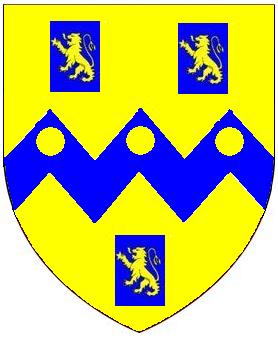
John Rolle (1598–1648) was a Turkey Merchant and also served as MP for the Rolle family's controlled borough of Callington, Cornwall, in 1626 and 1628 and for Truro, Cornwall, in 1640 for the Short Parliament and in November 1640 for the Long Parliament. He supported the Parliamentarian side in the English Civil War.

Sir Samuel Rolle of Heanton Satchville in the parish of Petrockstowe, Devon, served as Member of Parliament for Callington, Cornwall in 1640 and for Devon 1641–1647. He supported the parliamentary side in the Civil War.
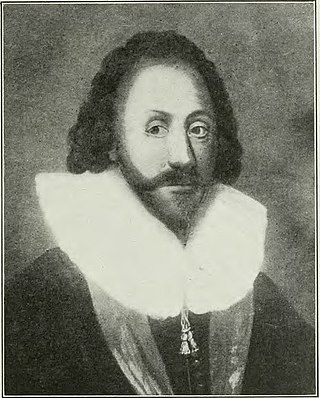
Sir Thomas Wise, KB, of Sydenham in the parish of Marystow and of Mount Wise in the parish of Stoke Damerel in Devon, was Sheriff of Devon in 1612 and in 1621 served as a member of parliament for Bere Alston in Devon.

Thomas Wise of Sydenham in Devon, was an English politician who sat in the House of Commons of England at various times between 1625 and 1641.
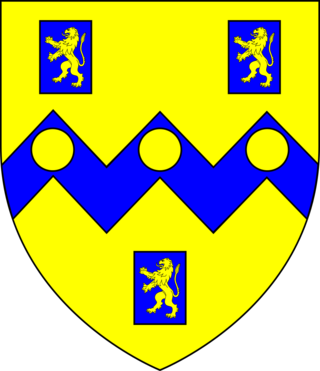
Robert Rolle was an English politician who sat in the House of Commons at various times between 1654 and 1660.

Huish is a small village, civil parish and former manor in the Torridge district of Devon, England. The eastern boundary of the parish is formed by the River Torridge and the western by the Rivers Mere and Little Mere, and it is surrounded, clockwise from the north, by the parishes of Merton, Dolton, Meeth and Petrockstowe. In 2001 the population of the parish was 49, down from 76 in 1901.
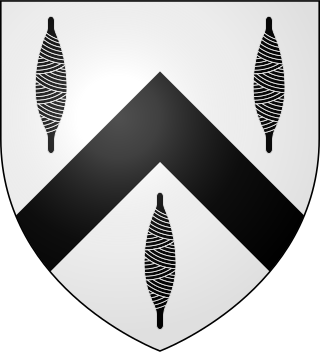
John Trefusis lord of the manor of Trefusis in the parish of Mylor in Cornwall, was an English politician who sat in the House of Commons from 1621 to 1622.

Stevenstone is a former manor within the parish of St Giles in the Wood, near Great Torrington, North Devon. It was the chief seat of the Rolle family, one of the most influential and wealthy of Devon families, from c. 1524 until 1907. The Rolle estates as disclosed by the Return of Owners of Land, 1873 comprised 55,592 acres producing an annual gross income of £47,170, and formed the largest estate in Devon, followed by the Duke of Bedford's estate centred on Tavistock comprising 22,607 with an annual gross value of nearly £46,000.

Heanton Satchville was a historic manor in the parish of Petrockstowe, North Devon, England. With origins in the Domesday manor of Hantone, it was first recorded as belonging to the Yeo family in the mid-14th century and was then owned successively by the Rolle, Walpole and Trefusis families. The mansion house was destroyed by fire in 1795. In 1812 Lord Clinton purchased the manor and mansion of nearby Huish, renamed it Heanton Satchville, and made it his seat. The nearly-forgotten house was featured in the 2005 edition of Rosemary Lauder's "Vanished Houses of North Devon". A farmhouse now occupies the former stable block with a large tractor shed where the house once stood. The political power-base of the Rolle family of Heanton Satchville was the pocket borough seat of Callington in Cornwall, acquired in 1601 when Robert Rolle purchased the manor of Callington.

Margaret Rolle, 15th Baroness Clintonsuo jure, was a wealthy aristocratic Devonshire heiress, known both for eccentricity and her extramarital affairs.

Hudscott is a historic estate within the parish and former manor of Chittlehampton, Devon. From 1700 it became a seat of a junior branch of the influential Rolle family of Heanton Satchville, Petrockstowe and in 1779 became a secondary seat of the senior Rolle family of Stevenstone, then the largest landowner in Devon. Hudscott House, classified in 1967 a Grade II* listed building, is situated one mile south-east of the village of Chittlehampton. It was largely rebuilt in the 17th century by the Lovering family and in the late 17th century became a refuge for ejected Presbyterial ministers. In 1737 its then occupant Samuel II Rolle (1703-1747) purchased the manor of Chittlehampton and thus Hudscott House became in effect the manor house of Chittlehampton.

Heanton Satchville is an estate in the parish of Huish in Devon. It took its name from the nearby former ancient estate of Heanton Satchville, Petrockstowe. It is the seat of Baron Clinton who owns the largest private estate in Devon, known as Clinton Devon Estates.

William Rolle was Member of Parliament for Callington in Cornwall in 1604 and 1614.
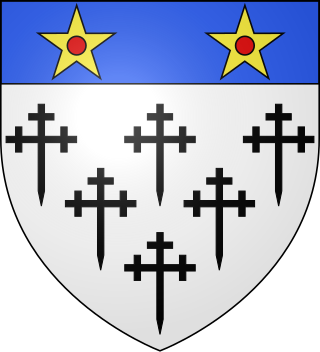
Clinton Devon Estates is a land management and property development company which manages the Devonshire estates belonging to Baron Clinton, the largest private landowner in Devon, England. Lord Clinton is of the Fane-Trefusis family, and is seated at Heanton Satchville in the parish of Huish, in Devon. The organisation's headquarters are situated on part of the estate at the "Rolle Estate Office" in the Bicton Arena at East Budleigh, near Budleigh Salterton, East Devon.
Robert George William Trefusis, 17th Baron Clinton of Trefusis in Cornwall and Heanton Satchville, Petrockstowe in Devon, was an English peer.
The Manor of Bicton is an historic manor in the parish of Bicton in east Devon, England.
References
- D Brunton & D H Pennington, “Members of the Long Parliament” (London: George Allen & Unwin, 1954)
- "Cobbett's Parliamentary history of England, from the Norman Conquest in 1066 to the year 1803" (London: Thomas Hansard, 1808)
- Maija Jansson (ed.), Proceedings in Parliament, 1614 (House of Commons) (Philadelphia: American Philosophical Society, 1988)
- J Holladay Philbin, "Parliamentary Representation 1832 - England and Wales" (New Haven: Yale University Press, 1965)
- Willis, Browne (1750). Notitia Parliamentaria, Part II: A Series or Lists of the Representatives in the several Parliaments held from the Reformation 1541, to the Restoration 1660 ... London. p. 1.
- Leigh Rayment's Historical List of MPs – Constituencies beginning with "C" (part 1)